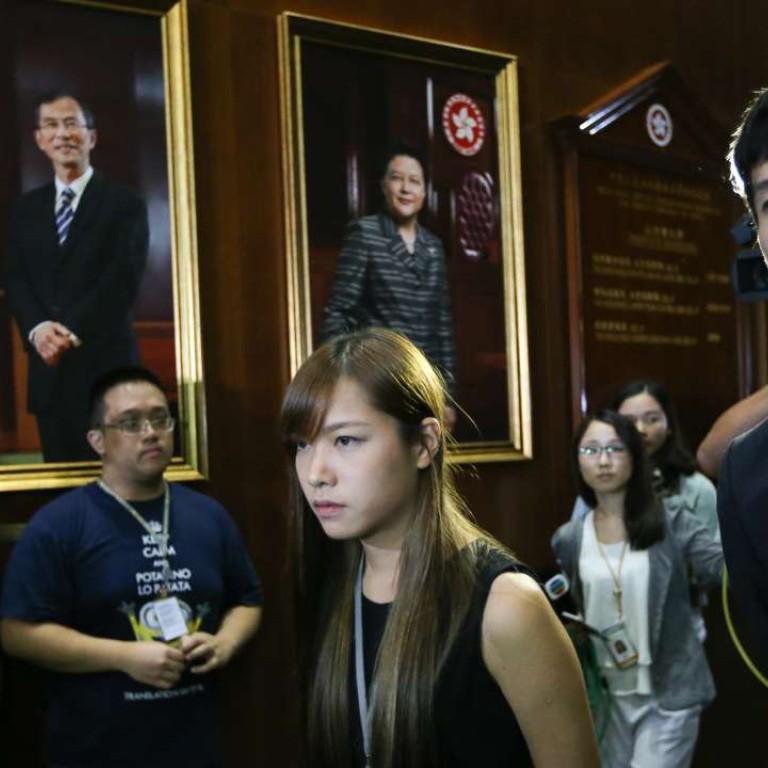
Hong Kong’s rebel lawmakers need to watch what they say for a return to calm
Bernard Chan says that, as the uproar over the oaths fiasco grows louder and nastier, a moderate tone from younger, more radical members would be a mark of maturity and inspire opponents to do the same
In mid-September in this column, I discussed the younger generation of lawmakers who had just won seats in the Legislative Council. I saw them as a sign of a new era, as older politicians from both the pro-establishment and pro-democracy camps stand down.
Having once been the youngest member of Legco, I wondered how the newcomers would perform. While they lack experience as legislators, they have idealism and new ideas. The challenge for them is to adapt to their new surroundings and the new range of political policy issues they will have to deal with.
This especially applies, perhaps, to the radical “localists” who have brought a new provocative and outspoken style into politics both in and out of Legco.

Can Hong Kong afford to let separatists into Legco?
In Singapore, it is a tongue-in-cheek anti-mainland slur. But it is also associated with Japanese anti-Chinese militarism. Either way, it is potentially hurtful.
If younger, more radical new members continue to use offensive language, I can see no way out
Lingnan puts special stress on developing good judgment, respect for others and effective communication. I would have thought that anyone with experience at a liberal arts college would think carefully about the use of language that potentially angers and upsets other people. Many students and faculty at Lingnan and other campuses will have heard about the controversies in US universities over free speech. What are the limits – where does offensive language become hate speech?
It might seem absurd to advise people (as a university in Colorado has done) to avoid words like “ghetto”, “illegal immigrant”, “crazy” or even “guys”. But promoters of such policies have a point when they say these words can hurt because they are inaccurate. They say the idea is to encourage people to be aware of how caring about the real meaning of words can improve civility.
No one wins when Hong Kong lawmakers play patriot games
So this is partly about being thoughtful and considerate to others. In Hong Kong’s badly divided political scene, this is asking for a lot.
Many in both pan-democrat and pro-establishment camps saw the two Youngspiration members’ remarks as at least childish, if not seriously offensive. There is now a major split over whether they can retake the oaths. Some observers call the situation a constitutional crisis.

Let cool heads prevail in the Legco oath fracas
Even when the court hears the government’s application, it might put the proceedings off to a later date. Or, if the court hands down a judgment, there could be an appeal. Even if we get a quick and certain outcome to the judicial review, one camp in Legco will still be unhappy. Will they continue with walkouts or other action to disrupt the council’s work? How will Legco play its part in solving issues like housing and poverty if it is divided by this sort of bitterness?
Hong Kong’s legislature in total gridlock as pro-establishment walkout leaves localists unable to retake oaths
And of course this division will be reflected in the wider community, between voters who sincerely supported – and maybe still support – candidates from one side or the other.
I was hoping for a better start to the new Legco. If younger, more radical new members continue to use offensive language, I can see no way out. However, they could indicate that they will moderate their language. That would be a mark of maturity and respect for others, and it would put pressure on their opponents to calm down. Everyone would benefit.
Bernard Chan is a member of the Executive Council

